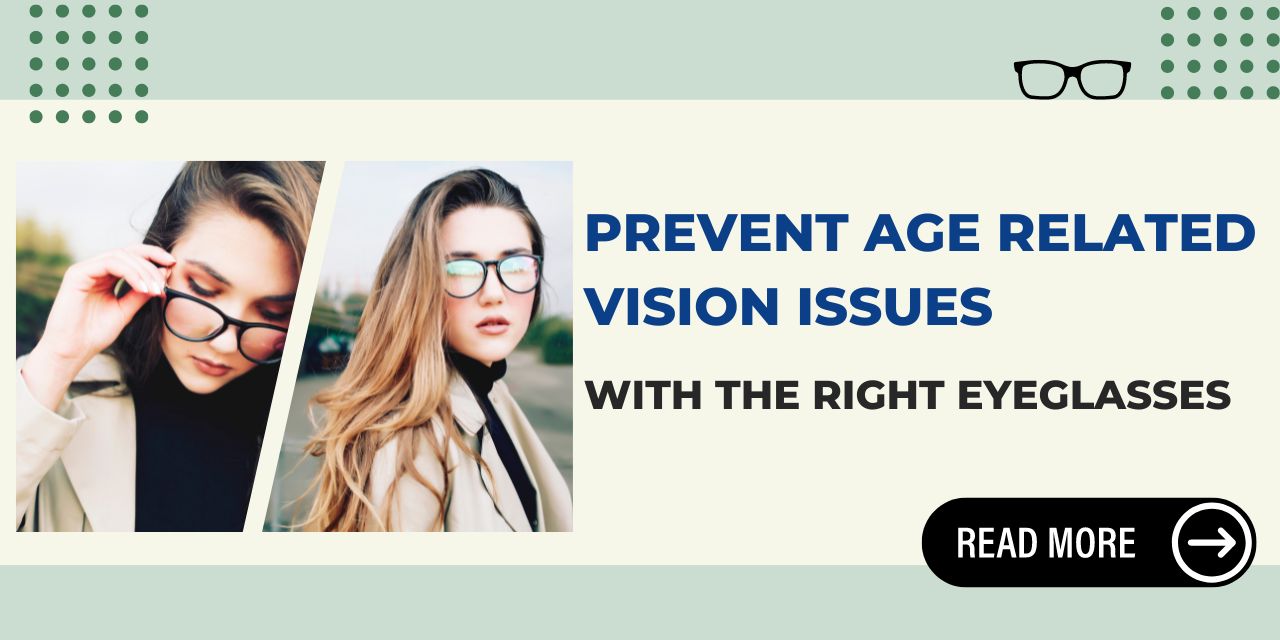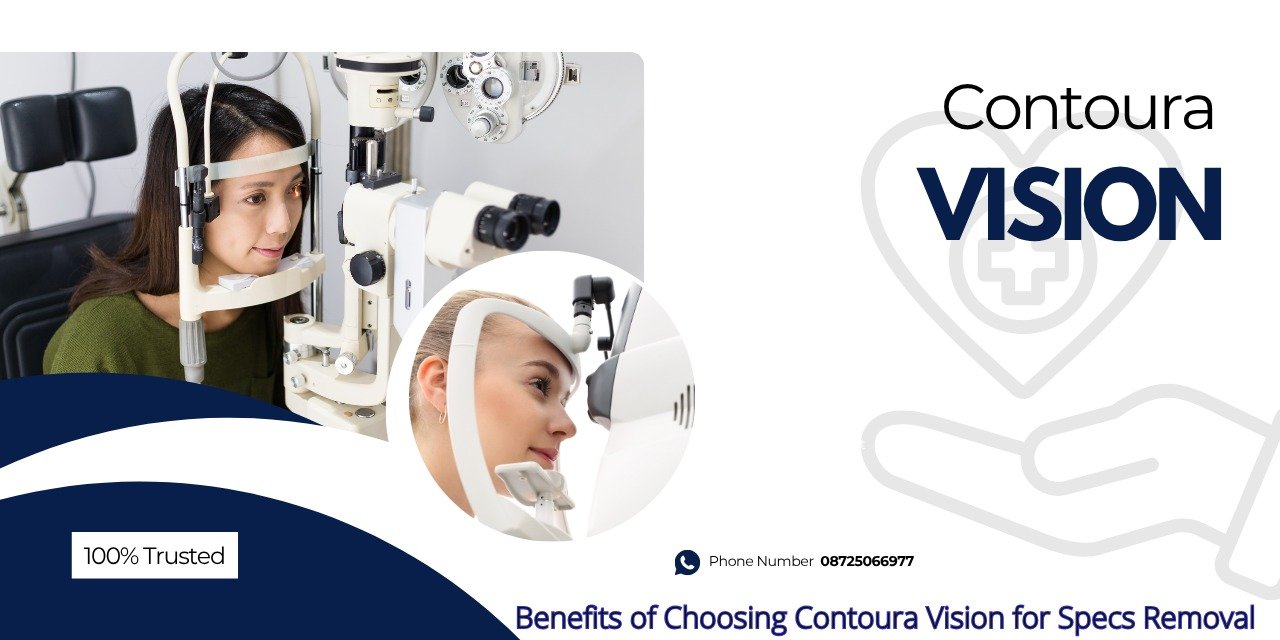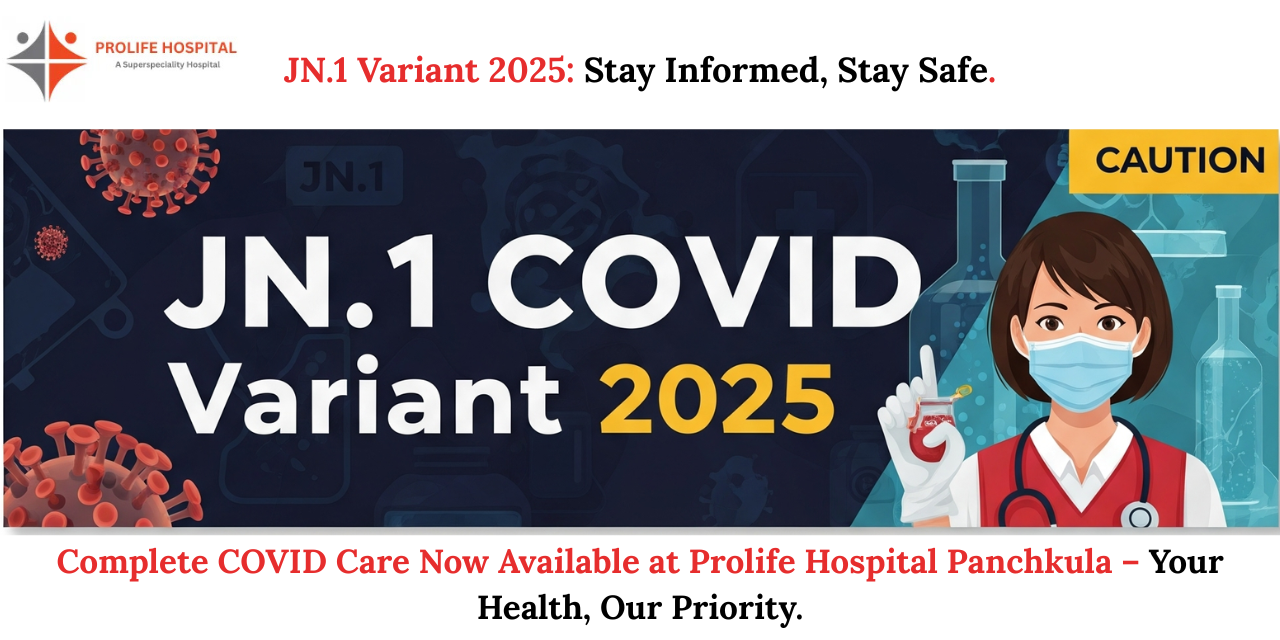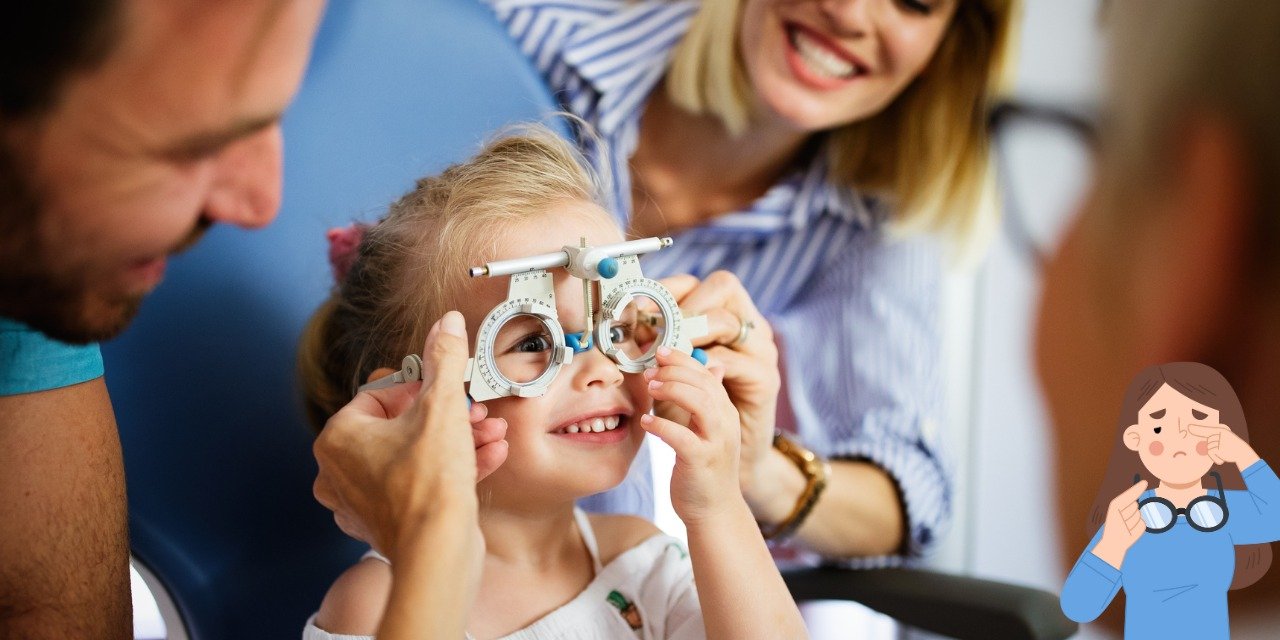As we age, our eyesight naturally begins to change, often leading to vision issues that can affect the quality of life. From presbyopia to cataracts, age-related vision problems can become more common as the years go by. While some of these conditions may be inevitable, eyeglasses play a vital role in helping to prevent, manage, or slow down the progression of these issues. This article will explore the benefits of eyeglasses for managing common age-related vision problems, providing practical insights for seniors who wish to maintain their eye health and clarity.
Common Age-Related Vision Problems
- Presbyopia
Presbyopia is the gradual loss of your eye’s ability to focus on nearby objects, a condition that usually begins to affect individuals over the age of 40. This natural ageing process occurs as the lens of the eye becomes less flexible. Reading fine print or doing close-up work can become difficult, often resulting in the need for reading glasses or bifocals. - Cataracts
Cataracts develop when the lens of the eye becomes cloudy, causing blurred vision, sensitivity to light, and difficulty seeing at night. Although cataracts often require surgery to remove, eyeglasses can improve vision in the early stages by enhancing contrast and reducing glare. - Age-Related Macular Degeneration (AMD)
AMD is a condition that affects the macula, the part of the eye responsible for sharp central vision. People with AMD may experience blurred vision, difficulty recognizing faces, or dark spots in their field of vision. Specially designed eyeglasses, such as those with high magnification or filters to reduce glare, can aid in managing this condition and improving daily function. - Glaucoma
Glaucoma occurs when the pressure inside the eye increases, damaging the optic nerve. This can lead to peripheral vision loss or even blindness if left untreated. While eyeglasses won’t stop glaucoma, prescription lenses can help manage related vision issues by improving focus and clarity. - Diabetic Retinopathy
Diabetic retinopathy is a complication of diabetes that affects the blood vessels in the retina, leading to vision problems. Individuals with this condition may experience blurred vision, floaters, or difficulty seeing colors. Properly prescribed eyeglasses can aid in reducing strain and improving clarity.
How Eyeglasses Help Manage Age-Related Vision Issues
➩ Correcting Visual Impairments
Eyeglasses are designed to correct refractive errors such as nearsightedness, farsightedness, and astigmatism, which can worsen with age. As the eyes age, these refractive errors can change, necessitating regular eye exams and updated prescriptions. The right pair of eyeglasses can restore clear vision, allowing individuals to read, drive, and perform other daily tasks with ease.
➩ Reducing Eye Strain
For older adults who spend time reading, working on computers, or performing close-up tasks, eyeglasses can significantly reduce eye strain. Presbyopia, for example, often requires reading glasses to allow for comfortable reading at a normal distance. Eyeglasses with anti-reflective coatings also help reduce glare, which is particularly beneficial for those with cataracts or other conditions that make bright light uncomfortable.
➩ Improving Night Vision
As we age, our ability to see in low-light conditions diminishes. Eyeglasses with anti-glare lenses or lenses specifically designed to enhance contrast can help older adults drive safely at night or see better in dimly lit environments. This can be particularly helpful for those with cataracts or AMD, who may struggle with light sensitivity or poor contrast.
➩ Protection from Harmful UV Rays
Long-term exposure to UV rays can increase the risk of cataracts and other eye conditions. Eyeglasses with UV protection, either in prescription lenses or as part of sunglasses, provide a crucial defence against the damaging effects of sunlight. This is especially important for older adults who may spend time outdoors or driving in sunny conditions.
➩ Specialized Lenses for Specific Conditions
For individuals with conditions like AMD or glaucoma, specialised lenses can make a significant difference in managing symptoms. High-magnification lenses, tinted lenses to reduce glare, or lenses designed to enhance contrast can all help people with these conditions maintain better vision and independence. Consulting with an eye care professional ensures that the right type of lenses is chosen to meet individual needs.
Importance of Regular Eye Exams
Even with the best eyeglasses, it’s essential for older adults to have regular eye exams to monitor their eye health. Vision needs change with age, and a yearly visit to an optometrist or ophthalmologist ensures that any vision problems are detected early and treated effectively. Early intervention can prevent more serious vision loss and help individuals maintain their independence and quality of life.
Conclusion
Eyeglasses are more than just a tool for correcting vision—they are an essential part of managing and preventing age-related eye issues. From reducing eye strain to protecting against harmful UV rays, the right pair of glasses can help older adults maintain clearer, healthier vision. Whether you’re dealing with presbyopia, cataracts, or more serious conditions like AMD, consulting an eye care specialist for the right prescription is key to managing your eye health as you age.
For the best selection of eyeglasses tailored to your needs, visit Titan Eye Plus in Sector 20, Panchkula. Recognized as the best eyeglasses shop in Panchkula, Titan Eye Plus offers a wide range of frames and lenses to suit every style and prescription. Their team of experts will help you find the perfect pair of glasses to manage your age-related vision concerns, ensuring you see clearly and comfortably for years to come. To get more information please contact us on : +919811732609













